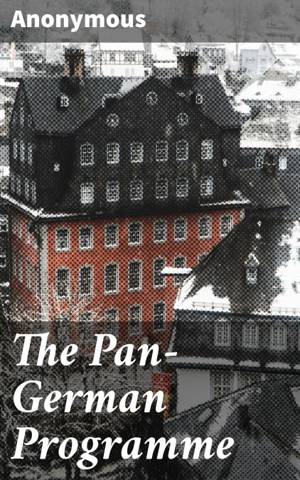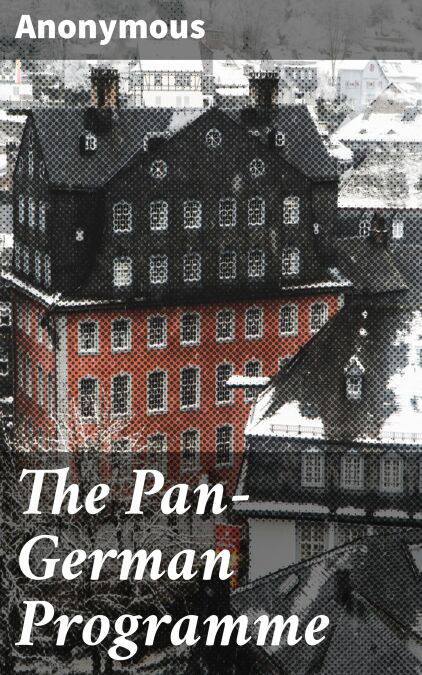
- Afhalen na 1 uur in een winkel met voorraad
- Gratis thuislevering in België vanaf € 30
- Ruim aanbod met 7 miljoen producten
- Afhalen na 1 uur in een winkel met voorraad
- Gratis thuislevering in België vanaf € 30
- Ruim aanbod met 7 miljoen producten
Zoeken
The Pan-German Programme E-BOOK
The Petition of the Six Associations and the Manifesto of the Intellectuals
E-book | Engels
€ 1,99
+ 1 punten
Omschrijving
Anonymous' 'The Pan-German Programme' is a groundbreaking political manifesto that outlines the Pan-German vision of achieving a unified German nation state through nationalist principles. Written in a concise and sharp style, the book delves into the historical context of German nationalism and the desire for a strong, centralized government. The author analyzes the social and economic implications of such a program, offering a thought-provoking commentary on the ideology of Pan-Germanism in the late 19th century. This work serves as an important primary source for scholars studying German nationalism and political theory of the time. Anonymous, a mysterious figure in the literary world, wrote 'The Pan-German Programme' as a critique of the political landscape of his time. Drawing on historical events and contemporary debates, the author provides a unique perspective on the rise of nationalism in Germany. The anonymity of the author adds a layer of intrigue to the text, inviting readers to focus on the ideas presented rather than the individual behind them. I highly recommend 'The Pan-German Programme' to readers interested in European history, political theory, and nationalist movements. Anonymous' insightful analysis and provocative arguments make this book a must-read for anyone seeking a deeper understanding of 19th century German politics.
Specificaties
Betrokkenen
- Vertaler(s):
- Uitgeverij:
Inhoud
- Aantal bladzijden:
- 24
- Taal:
- Engels
Eigenschappen
- Productcode (EAN):
- 4064066097080
- Verschijningsdatum:
- 18/05/2021
- Uitvoering:
- E-book
- Beveiligd met:
- Digital watermarking
- Formaat:
- ePub

Alleen bij Standaard Boekhandel
+ 1 punten op je klantenkaart van Standaard Boekhandel
Beoordelingen
We publiceren alleen reviews die voldoen aan de voorwaarden voor reviews. Bekijk onze voorwaarden voor reviews.







